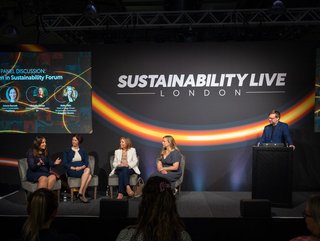Sustainability careers breed diversity in business & society

What defines the perfect sustainability leader? Perhaps it’s someone with a significant level of empathy towards the climate scenario and the social implications of business as opposed to a die-hard activist.
Over the years there have been many types of scrutiny among very passionate people in the world as to whether sustainability is truly achievable, but more pressingly whether authorities and businesses are doing enough to eliminate the possibility of a 1.5-degree temperature rise.
Such a challenge hinges on great leadership, but not in the historical sense. While a militant approach to major challenges might have worked for countries in the past, now is the time for more empathetic leaders to take charge, making necessary changes environmentally and socially.
The movement for empowering women is becoming more than what may previously be perceived as a means of bringing female leaders to the fore, but also recognising the potential of a diverse leadership in altering the course of an unsustainable business. However, such a conclusion also throws out questions around work-life balance, particularly among parents in executive roles where preconceived ideas about the family dynamic are under question.
A non-traditional approach to diversity in the workplace
When was it deemed necessary for men to work a living and their wives to remain at home with their children? This is the conundrum that has plagued society for a while and led to an overwhelming majority of male representation in leadership. With that said, the women of industry are certain that women have a role to play in developing sustainability in the time frame presented by the Paris Climate Agreement—along with many ethical practices required to shape a future of global equity.
“Diversity leads to greater innovation. It’s always combing back to that stat that we all know—we’ve all seen the report—but ultimately because we’re dealing with some huge social issues and our societies are made up of all different types of people,” says Katie Mills, Head of Zeigo Power at Schneider Electric, and a keen advocate of workplace diversity.
“Ultimately, we’re failing right now. We haven’t reached our targets when it comes to climate change. We have to look at ways to innovate in totally new ways. If we don’t do that, then ultimately we will all fail.”
The ‘ways’ that Mills refers to are the efforts to promote diversity and understand that employment is not about who fits the mould of society, but who has the right passion, mindset and expertise to develop business’ sustainability strategies, and women in particular are seen as more empathetic in many cases.
According to Michelle Davies, Global Head of Sustainability at EY Law, a sustainability leader should not be confined to a single role. The position that person plays within an organisation is to embed sustainability in conversations among all internal stakeholders.
“If it is only compliance and they're not responsible for infusing sustainability throughout the entire organisation, which means having a greater impact on strategy, a greater impact on value driven strategies, if it's just compliance, they're not going to get a significant budget,” says Davies.
The key point here being ‘budget’ whereby the consensus is that women are unlikely to be awarded significant funding for major or high-risk business activities over their male counterparts.
“It can't be that you have a sustainability lady walking around asking people, ‘could you please maybe incorporate sustainability criteria in procurement or we need to invest this in renewable energy,” says Angela Hultberg, Global Sustainability Director at Kearney.
“It doesn't work. They need to have a mandate also to influence the business strategy, not a sustainability strategy, but a sustainable business strategy.”
This point highlights one of the concerns among women, and in fact all advocates of women in sustainability roles, businesses can be very subjective in the way they treat male leaders versus women. This isn’t just bad for business from a diversity or image perspective, but will likely hinder the performance of sustainability strategy. This is somewhat alarming as there are only two ways this scenario can go.
Either women are less respected in the workplace due to the lack of progress—a result of smaller budgets—or they are led down treacherous paths in order to show they are worthy of the support they need. However, listening to some of influential women working in sustainability, their drive to take action is what allows them to power through adversity.
Addressing the expectations of females in society
As the carriers of the next generation, historically women have found it difficult to pursue careers of influence, which has also presented challenges for a diverse group of individuals—minority, sexuality and other factors of discrimination creeping into the workplace.
The ladies of the industry, as seen in the Women in Sustainability panel as Sustainability LIVE London, are keen to address the idea of not role-reversal, but role equality. Not only does maternity pose risks to their careers, but it can also put many female leaders on the back foot if their work and personal environments show little incentive to develop their careers—this goes for any industry.
Listening to the women on stage, it becomes apparent that work-life balance isn’t just about managing tasks, but also creating a new understanding of parental roles.
“I think it is incumbent upon us as leaders within our own organisations to help women see that it is a balance. If they want their careers to progress, there are certain things that they will need to do,” says Davies.
Joanna Bonnett, Sustainability Committee Member at PageGroup, then divulges that her family dynamic is very untraditional, therefore proving that roles can shift.
“I don't know my children's shoe size. I learned one of them because one of my daughters has the same shoe size as me and she broke one of my heels. So I learned it in an indirect way,” Bonnet says.
“I don't know my youngest children's shoe sizes, I never have. That's not my role within the family. But it is also about making sure that others that are coming up understand that, ‘well, that's my life. This is what I've done’. Maybe that 's the same for them, maybe it's not.”







